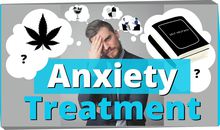How to Relax (Free relaxation download)
Have you tried relaxation and found it doesn’t work for you?
You would love to feel less anxious and more relaxed, sleeping easy, taking life as it comes and not sweating the small stuff.
Well I’m here to tell you that it’s not because you’re no good at relaxation!
It’s because of only using it when feeling anxious.
“Well of course I’m using it when I’m anxious Michael! That’s when I need to calm myself down!”
The issue with this is something called our adrenal baseline.
When you feel frequently stressed, what has happened is that this has become elevated.
Adrenal spikes, or anxiety, are happening off this higher baseline.
AND, if you only relax when you feel anxious, then you will only come back to this line.
Never changing it.
This is why relaxation isn’t as effective as you’d like.
I’ve had hundreds of clients who say how much more relaxed they feel after just 3-4 weeks of doing relaxation differently.
If you want to feel less anxious and more relaxed, you’ll need to start doing relaxation regularly – just like you’d do with exercise.
Your body needs it regularly and your brain needs the practice to get good at it.
Regular relaxation leads to quite the list of insane benefits.
- Better sleep
- Digestion
- Skin
- Libido
- Prevention of cortisol-based sugar cravings
- Improved heart health
- Reduced inflammation and autoimmune flare-ups
- More stable blood sugar levels
- Reduced muscular tension and pain
- Reduced risk of stroke
- Improved mood
- Concentration
- Memory
- Less fatigue
- Improved anger, irritability and frustration
- More confidence
- Better decision-making
I’m Michael Burrows. I’m a Clinical Psychologist and Anxiety Specialist.
Today, I’m going to clear-up this whole relaxation thing for you,
and I’m also going to include a free relaxation exercise for you to download and listen to, so you can get started on getting more relaxed!
First-up, you’re going to need to know about your adrenal baseline.
If we’ve got a graph of adrenaline. From 0 (completely relaxed) to 100 (full adrenal saturation in the blood).
Then anxiety is like this...
You have the release of adrenaline to help you escape, then either you escape, or nothing bad seems to be happening (false alarm), and adrenaline curves back down.
At this level, you probably wouldn’t even notice that you’re feeling anxious.
But most of us aren’t sitting around zero.
We’ve got daily stressors popping up.
Gotta pick up the kids from school. There’s that deadline at work.
My neighbour isn’t waving friendrily to me anymore, I wonder if something’s wrong?
Etc. etc. etc.
Our brain’s got this great ability to be able to temporarily increase our adrenal baseline, to help us deal with these dangers.
Get our life safe once more.
We now spike off of this new baseline.
More adrenaline, more power, more strength, more speed, more energy!
Great right?
Not for these kinds of problems.
Your increased physical abilities are fantastic for dealing with wild beasts and other physical problems.
But for most of the things we worry about, the increased adrenal state does not help us get rid of them.
So what’s a brain to do?
Well, obviously, we need more adrenaline if that wasn’t enough!
Our baseline can be elevated up and up.
As it starts getting higher, you begin to really feel it when there’s a spike, and you feel generally more stressed, perhaps irritable.
You could really do with a holiday.
Yes, a holiday might help bring that baseline down (depends on the holiday). If there’s a lack of perceived danger and you get to relax while you’re holidaying.
However, then you’re back to your life right?
And that baseline will creep back up to try to help you out.
The trouble is, many of us do not have a regular time when we relax, to reset this baseline.
We go and go and go and go.
“Wait a second Michael, what about Netflix and chill? I grab a cold one and relax after work most days!”
Ok, check this out!
If you’re stressed out from work and you watch some TV, or even something less stimulating like reading a book, you’ll still have some residual adrenal activity.
Your brain reacts to incoming stories like these as if they’re happening and will release an appropriate amount of adrenaline for that.
You will feel way calmer than before when you were worried about stuff.
As this has distracted you from those thoughts.
But, you’re not going to reduce that baseline that way!
It’s similar with doing relaxation only when you’re anxious.
Sure, you’ll get back to baseline and feel a whole lot better.
But you need to experience being below your current baseline in order to reduce it.
See, your brain needs a regular experience of being below your usual level of adrenaline, but still safe.
Then it goes, “Huh. Guess I’m safer than I thought. Let’s save some energy and reduce the adrenaline somewhat.”
And day-by-day, your baseline drops down, and down, and down.
I find that it often takes people 3-4 weeks of daily relaxation before they notice the effects and are like, “Whoa, I can feel it, I’m definitely more relaxed than a few weeks ago!”
Though more sensitive people sometimes notice much sooner.
How do you drop below your current baseline in order to reduce it?
Regular daily relaxation.
Stay with me…
When you do relaxation regularly, you plan it into your day.
You’re more likely to get more relaxation that way, instead of doing it when you feel like it.
Plus you are going to be relaxing because it’s the time you’ve decided to relax, not because you are feeling anxious.
When you’re feeling anxious, you’re at the top of an adrenal spike and it’s that much harder to get below your baseline.
There are many relaxation methods you can utilize to signal to your central nervous system to wind-down and relax.
A very efficient method is through relaxation exercises.
These are tried and true well researched techniques that you can employ to consistently achieve relaxation.
You can achieve a relaxed state with only 5 minutes of your time and you can do them anywhere with no equipment.
My personal favourite is the Progressive Muscle Relaxation.
You progressively go through each major muscle group tensing and then relaxing as you go.
This is especially useful if you’ve been finding that you have tense muscles or fatigue due to anxiety.
It’s also one of the easiest relaxation techniques to concentrate on without getting distracted by other thoughts, as it’s quite a novel exercise.
I’ve put a link down below for you to download and listen to this fantastic exercise.
Given all the amazing benefits for physical and mental health, I highly recommend starting on daily relaxation practice.
It only needs to be 5 minutes of your day, which is nuts for the health improvements it provides.
You can download this relaxation option or play it directly on the website, or there are many other relaxation options about the place.
Just don’t get lost in the noise.
Pick something to get started and start practicing today!
As I said, my personal favourite is the Progressive Muscle Relaxation exercise (PMR)
CLICK HERE for a FREE download of this relaxation.










